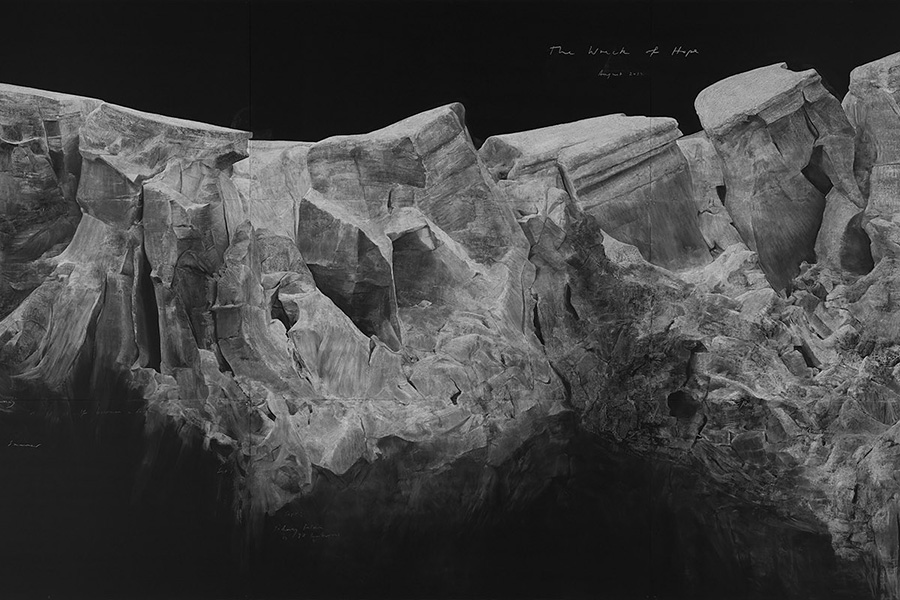When Donald Trump and his followers go in search of historical forerunners to justify their regime, they turn with striking regularity to the presidency of Andrew Jackson. Trump dropped Jackson’s name often during his first White House term, trying to assimilate Old Hickory’s stature to his own populist politics. “Jackson’s life was devoted to one very crucial principle,” he declared in Nashville in 2017. “He understood that real leadership means putting America first.” On Inauguration Day 2025, as Trump began signing the executive orders that have undermined American democracy and stretched the rule of law to the breaking point, he had Jackson’s portrait reinstalled to its prideful place on the Oval Office wall, where Joe Biden had replaced it with a portrait of Benjamin Franklin. Now smitten by the eccentric idea that high tariffs are the key to American greatness, Trump has also embraced the champion protectionist president, William McKinley. But Jackson remains, symbolically, Trump’s presiding hero.
Vice President J.D. Vance has gone even further, not merely claiming Jackson’s mantle for Trump but citing him as the progenitor of the blatantly unconstitutional idea that a president can disobey the federal judiciary with impunity. In 2021, on a right-wing podcast, Vance advanced the then-outlandish proposition that Trump, if reelected, should peremptorily fire the entire midlevel federal workforce—hundreds of thousands of experienced and dedicated public servants performing indispensable work—and replace them with MAGA loyalists (“our people”). Vance had presumably paid enough attention at Yale Law School to understand that even the conservative Roberts Court would likely strike down such a directive. But if that happened, he asserted, Trump should follow what Vance claimed to be Jackson’s example and simply ignore the ruling: “Stand before the country, like Andrew Jackson did,” he declared, “and say the chief justice has made his ruling, now let him enforce it.” Asked by a Politico reporter in January 2023 whether he still held to this view, Vance glibly reiterated his point: “Yup.”
It’s time to put this canard permanently to rest. As has often been noted, Jackson never said the words to which Vance was alluding. The quotation in question—“Well: John Marshall has made his decision; now let him enforce it!”—was invented and ascribed to Jackson by the New York journalist Horace Greeley (who as a partisan Whig had despised Jackson) in the first volume of his The American Conflict, published in 1864, nearly twenty years after Jackson died. Yet even critics of Vance’s and Trump’s disregard for the rule of law have ignorantly assumed that, although the quotation is made up, the essence of Vance’s depiction of Jackson’s defiance of the Court is valid.
“The President Jackson quote is likely apocryphal, but the history is real,” Zack Beauchamp, a senior correspondent at Vox, wrote last year. According to Beauchamp, Jackson ignored a Supreme Court ruling calling on him to respect Native American land rights, an outrage that, he claimed, finally led to “the ethnic cleansing of about 60,000 Natives—an event we now call the Trail of Tears.” Most Americans, he continued, are ashamed of the autocratic Jackson for disregarding the Constitution and “trampling on the rule of law to commit atrocities.” Even in the process of attacking Vance’s claims about presidential authority, Beauchamp unfortunately sustained his claims to a Jacksonian precedent. Thus junk history is amplified.
In fact, Jackson did not defy the Court. In the case in question, Worcester v. Georgia, he wasn’t even in a position to do so, and he neither practiced nor advocated such misconduct at any other point in his two terms. Although he held expansive views of executive power, which led his political enemies to lambaste him as a lawless enemy of the Constitution, Jackson also believed strongly in the Constitution and never violated a direct court order as Vance would have Trump do. Indeed, Jackson defended the Constitution to the point where he became, prior to Abraham Lincoln, its sturdiest defender against the fractious states’ rights slaveholders of the lower South, whose ideological descendants make up a significant portion of the MAGA coalition.
Worcester v. Georgia was decided by the John Marshall Court in 1832. It did involve Native American sovereignty, but not, strictly speaking, land rights. In 1830, hoping to suppress the disruptive activities of missionaries sympathetic to Cherokee claims to sovereignty—including helping to establish the first Native American newspaper, the Cherokee Phoenix—Georgia’s legislature enacted a statute that prohibited whites from residing on the tribe’s lands without a license from the state. Samuel Worcester, a cofounder of the Phoenix and one of several missionaries tried under the new law, contended that it violated existing treaties between the federal government and the Cherokee nation, but that argument got him nowhere. Sentenced, along with another unyielding missionary, Elizur Butler, to four years of hard labor in a state penitentiary, he appealed to the Supreme Court to quash his conviction.
The Court, in a decision written and delivered by Chief Justice John Marshall, ruled in his favor. Since the Cherokee constituted a separate sovereign nation, Marshall argued, only the federal government had the authority to deal with them, as with any other Native nation. He conceded that conquest or purchase could lead to political domination of one nation over another, but any such authority, he asserted, belonged to the federal government, not the states. Because the state of Georgia had no authority regarding Native American affairs, the statute over which Worcester and others had been convicted was null and void.
Insolent Georgia authorities refused either to release Worcester and Butler or to respect the Supreme Court’s negation of the licensing law. Finally, almost a year after the Court’s ruling, a newly elected governor, hoping to forestall another pro-Cherokee Supreme Court decision, pressed for the offensive law’s repeal and offered Worcester and Butler a pardon and release if they promised no further legal action. After the Cherokee removal began, Worcester wound up accompanying them, with his family, to Indian Territory (what is now Oklahoma), where he died in 1859.
In short, the Court issued no order for President Jackson to defy. The case involved the Supreme Court, the state of Georgia, and Samuel Worcester; the federal government, let alone the executive branch, was not a party to it. Soon after Marshall’s ruling, Jackson did note that the Court could not compel the Georgia authorities to heed it: “The decision of the Supreme Court has fell still born, and they find that they cannot coerce Georgia to yield to its mandate,” he wrote to his representative in charge of negotiating with the Natives, John Coffee. But this was hardly a president’s willful refusal to adhere to a court ruling; however callous, it amounted to little more than stating the obvious. Nor did Jackson defy the Court when he failed to send federal marshals to Georgia to halt the state’s meddling with the Cherokee—for the simple reason that the Court did not order or otherwise ask for such an intervention.
None of this mitigates the shame of Jackson’s policies regarding the Cherokee or any other Native nation. Having lobbied hard for the passage of the Indian Removal Act of 1830, Jackson exploited the later crisis in Georgia to negotiate a basically fraudulent treaty with a small Cherokee faction, ceding all the nation’s lands east of the Mississippi River in exchange for $5 million and the promise of relocation to Indian territory out West. It was this treaty, not Worcester v. Georgia, that led to the Trail of Tears under President Martin Van Buren.
But the urgent constitutional issues at hand today have nothing to do with the injustice of Jackson’s Indian policies. They are about the illegitimacy of any attempt by the Trump regime to defy an order from the Supreme Court—or any other federal court. Despite Vance’s ignorant bluster about Jackson, such an action would not just be lawless; it would be without precedent in the country’s history.


















 English (US) ·
English (US) ·